Buying a New Vs. Used Motorcycle

Freshly minted or tried and true, that is the question. To decide, start with this guide
Several decades ago, we went to lunch with an executive VP of a big advertising agency. Forgoing a restaurant, he suggested going to the local motorcycle dealership and having a look around. There he spotted a lineup of new 250cc motocross bikes, freshly assembled from their shipping crates. Dressed in a crisp business suit and tie, he hardly looked like the potential buyer of a new dirt bike – more like a touring rider, if anything. But he approached the nearest salesman, pointed at one of the new race bikes, and simply said, “I’ll take that one” while handing over a credit card. “I’ll pick it up Saturday.” The young salesman was visibly stunned, and to this day that was the easiest sale we ever witnessed.
It all proved a point: Buying is simple and easy if you have the money. Put another way: Money buys not only the product, but the terms too. Although, what if you’re not a high-paid executive with a corner office and, instead, need to make every dollar count? That’s when you have a mountain of strategy and logistics to climb, beginning with deciding whether to buy new or used, and then navigating plenty of other challenges along the way. As you’ll learn in this brief but essential primer, it’s worth doing right.
Motorcycle.com thanks Yamaha for sponsoring this new rider series.
Nice and New
“Will that be cash or credit?” It sounds comical, but how you choose to pay for your new motorcycle is just one of many factors to consider. Of even greater importance is higher in the purchase funnel though – whether the technical features, reliability, and warranty protection of a new bike will best support your riding style. With new bikes (and some selected used ones, depending on manufacturer), you can even extend the factory warranty or add something called GAP coverage that will protect you if the machine, for example, blows up or gets totaled before being paid off. Long story short: Buy new if you must have the latest model and features, if you want a new-bike factory warranty, and want the peace of mind of riding a reliable new machine. Viable reasons for buying new are going racing, cross-country touring, or other reasons that favor maximum reliability and performance.
Downsides to buying new? Some actually exist. One is that the motorcycle will likely start a value depreciation slide the instant you sign the purchase contract. A second is that if you finance the machine, you’ll be married to a payment book for months or years. This might or might not become a burden, but if you work it right, paying off a unit “as agreed” can improve your FICO score (aka credit rating). On this note, buyers with great FICO scores often get better APR rates on their loans.
Friendly tip: Before entering a purchase scenario at a dealership, check your credit score with one of the easy-to-use apps such as Experian or Credit Karma, or have your bank run a “soft check.” Such knowledge is power, because guaranteed, Job 1 of a good salesman is to run your credit to see if you’re a viable buyer or just a wannabee.
Used, and Hopefully not Abused
This topic has more barbs than a pack of porcupines. On the best day, buying used can get you a fantastic bike, presented virtually as new by a fastidious owner who hardly used it, for a super-lowdown price. It can and does happen. But the opposite scenario is always lurking out there too: The ridden-hard-and-put-away-wet machine, four owners past new, freshly washed and pimped out to look great, but sporting a zillion miles with mechanical calamity just waiting to happen – to you as its next owner – with no warranty or recourse, except to suck it up.
The best way to navigate a used-bike purchase is to get real expertise on your side. Find a trusted friend – or make a new one – to help you case Facebook Marketplace, Craigslist, eBay, your local dealerships, or wherever you may shop. No, scratch that: Make it a trusted friend who is also a genuine expert in the subject! Then take them with you when you go look at motorcycles. They’ll look closely for telltale signs of use or abuse, factor in total miles, validate service records, and consider the overall ownership history to determine if it’s the right bike for you.
Don’t get frustrated by looking at lots of used bikes. Instead, pretend you’re taking an extension course and embrace the learning. Because surely, you’ll find more bikes that aren’t right en route to discovering the one that is. This one has too many miles; that one lives outside under a cover; or this other one wears signs of poor maintenance, e.g., a worn chain and sprocket, old tires, dirty oil and brake fluid, or even expired tags.
As with house shopping, the more units you look at, the more you’ll recognize the right one when you see it. That’s your “Eureka!” moment. Then let the negotiations begin. You can always consult NADA, Kelley Blue Book, J.D. Power, Hagerty or other online databases, but in the moment, what you are willing to pay and what the seller is willing to accept drives the deal. And by the way, cash is most often king. Speaking of which, before agreeing on a price, insist on a clear title in the seller’s name! Anything else is a kettle of fish you don’t want to own. Trust us on this.
Become a Motorcycle.com insider. Get the latest motorcycle news first by subscribing to our newsletter here.

John L. Stein brings 30 years of both automotive and motorcycle experience, having written for AutoWeek, Car and Driver, Motor Trend, Sports Car International, Chevy Outdoors, Truck Trend, Cycle World, Motorcyclist, Adventure Travel, and Men’s Journal, just to name a few. His articles have been published in the US, England, Japan, Australia and France. His technical knowledge combined with his ability to understand and effectively communicate what a motorcycle is doing underneath him is an invaluable resource to the Motorcycle.com team.
More by John L. Stein



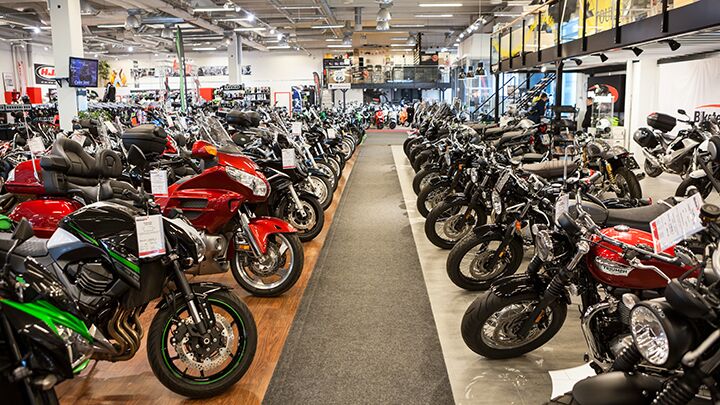




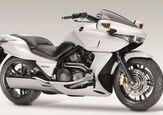
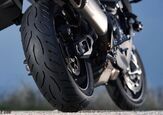

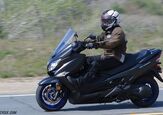

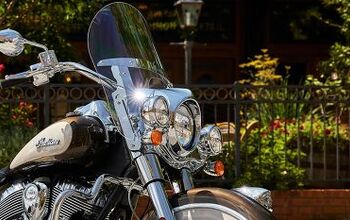

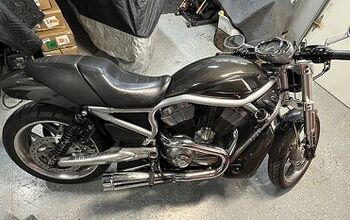

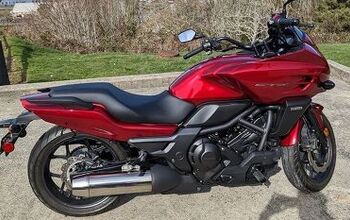
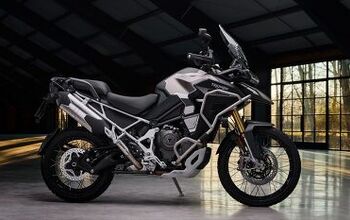
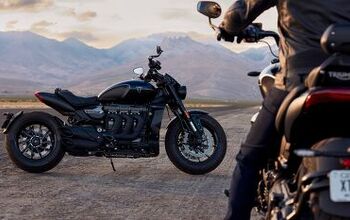

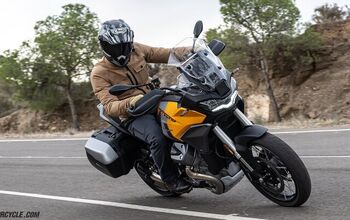
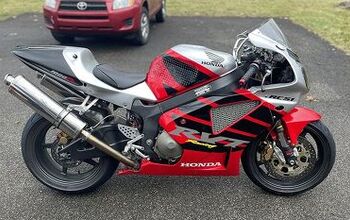

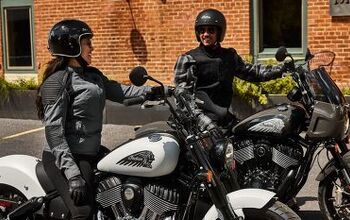
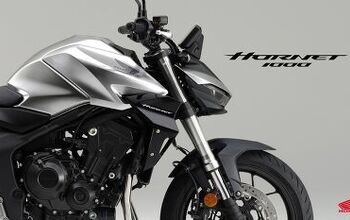
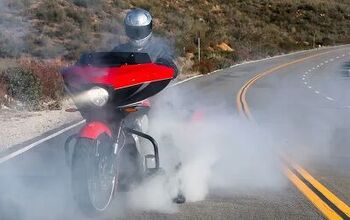
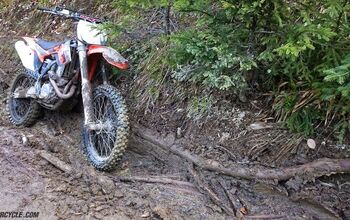

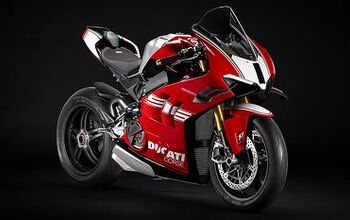
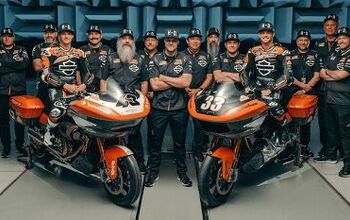
Comments
Join the conversation
I’m happy!
Lots of dealerships offer discounts on new bikes but once you add up all the dealership fees you're still paying close to MSRP. I was on the lookout for a Gen III Hayabusa and found several discounted by up to 1800 dollars but dealership fees totaled up to 1500 dollars so I wasn't really saving anything. I eventually found a great dealership in Rockingham, NC that had a leftover 2023 Hayabusa discounted by 2800 dollars and only charged 150 bucks in dealership fees which I gladly paid.
As for buying a new vs used motorcycle I prefer to buy new simply because you never know how well or poorly the previous owner treated the bike or if it was babied or abused. With a new bike you get to break it in, you know its never been abused and you get a full warranty. In most instances a used bike is a good deal but if you're patient and if you search around you can usually get a good deal on a new bike.